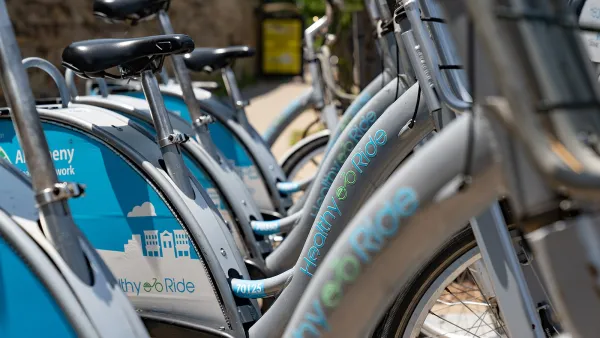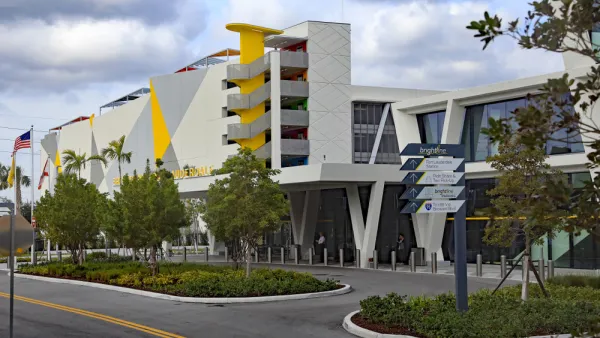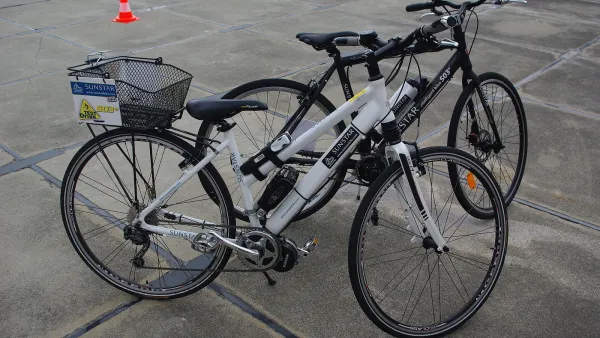I spent the last two weeks of December in Atlanta, living (mostly) with my parents. My life in Atlanta is much more car-dependent than my life in Jacksonville; in the latter city, I live a block from a bus stop, while in Atlanta, I live at least a mile from the nearest bus stop (and more importantly, near no sidewalks to take me to said bus stop). So naturally, I drove everywhere in Atlanta. And while driving, I noticed a couple of unusual things. First, I noticed that unlike in my Jacksonville neighborhood, bicyclists actually tried to ride on the street rather than on sidewalks.* Second, I noticed that I was beginning to get annoyed with bicyclists- to a much greater extent than I have ever been annoyed with pedestrians while driving.
I spent the last two weeks of December in Atlanta, living (mostly) with my parents. My life in Atlanta is much more car-dependent than my life in Jacksonville; in the latter city, I live a block from a bus stop, while in Atlanta, I live at least a mile from the nearest bus stop (and more importantly, near no sidewalks to take me to said bus stop). So naturally, I drove everywhere in Atlanta.
And while driving, I noticed a couple of unusual things. First, I noticed that unlike in my Jacksonville neighborhood, bicyclists actually tried to ride on the street rather than on sidewalks.* Second, I noticed that I was beginning to get annoyed with bicyclists- to a much greater extent than I have ever been annoyed with pedestrians while driving.
A recent Planetizen article (http://www.planetizen.com/node/47339 ) suggests that motorist hostility to bicyclists is no more rational than motorist hostility to other nondrivers. But I believe that the bicyclist/motorist relationship is different, for two reasons.
First, bicyclists affect motorist behavior more often. Pedestrians rarely share space with motorists; they walk on sidewalks, cross the street, and then return to their customary state of invisibility. By contrast, if someone is cycling in front of a motorist, the motorist must drive more slowly and be more careful as long as the cyclist is in front. And if traffic is sufficiently congested that the driver cannot easily pass the bicyclist, this status quo might last awhile. So the driver not only must go more slowly, but has a more difficult (and thus more annoying) experience where a cyclist is present.
Second, nearly all drivers are occasionally pedestrians- if only because drivers must walk in and out of parking lots. By contrast, many drivers rarely or never use a bicycle. As a result, they have less empathy for cyclists, because they will never be in the same position as a cyclist.
Thus, it is only natural that as long as cyclists use the same streets as drivers, the driver/cyclist relationship will be a tense relationship- to a much greater extent than the relationship between drivers and other nondrivers.
*Which of course, is as it should be according to most local laws. I have no opinion as to proper cycling practice on this issue.

Analysis: Cybertruck Fatality Rate Far Exceeds That of Ford Pinto
The Tesla Cybertruck was recalled seven times last year.

National Parks Layoffs Will Cause Communities to Lose Billions
Thousands of essential park workers were laid off this week, just before the busy spring break season.

Retro-silient?: America’s First “Eco-burb,” The Woodlands Turns 50
A master-planned community north of Houston offers lessons on green infrastructure and resilient design, but falls short of its founder’s lofty affordability and walkability goals.

Test News Post 1
This is a summary

Analysis: Cybertruck Fatality Rate Far Exceeds That of Ford Pinto
The Tesla Cybertruck was recalled seven times last year.

Test News Headline 46
Test for the image on the front page.
Urban Design for Planners 1: Software Tools
This six-course series explores essential urban design concepts using open source software and equips planners with the tools they need to participate fully in the urban design process.
Planning for Universal Design
Learn the tools for implementing Universal Design in planning regulations.
EMC Planning Group, Inc.
Planetizen
Planetizen
Mpact (formerly Rail~Volution)
Great Falls Development Authority, Inc.
HUDs Office of Policy Development and Research
NYU Wagner Graduate School of Public Service





























